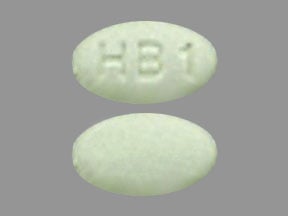
Cinacalcet Coupons & Savings Card – Discount Prices from $39.99
Generic for: Sensipar
My prescription
Edit
30MG, Cinacalcet (90 Tablets)
Select pharmacy

CVS
$40.68
COUPON PRICE
Walmart
$39.99
COUPON PRICE
Albertsons
$52.40
COUPON PRICE
Walgreens
$53.10
COUPON PRICECinacalcet savings card
Show this card to your pharmacist
Walmart
$39.99
BIN
ID
PCN
GRP
019876
LH16E48BFC
CHIPPO
LHX
Powered by
More prescriptions for kidney disease
More prescriptions for kidney disease
Price history for Sensipar (brand) & Cinacalcet (generic)
90 Tablets, 30MG
Average retail price for Sensipar
Average retail price for Cinacalcet
Average SaveHealth price for Cinacalcet
Our price history data is based on aggregated prescription data collected from participating pharmacies in America. Our prescription data updates daily to reflect the latest price changes. If you notice a missing data point, it means there wasn't sufficient data available to generate a monetary value for that date.
We analyzed Cinacalcet prices for (30MG, 90 Tablets) over the last 12 months. The average retail price was $108.53, while the average price using the SaveHealth discount card was $45.66. That's a savings of approximately 57.93% when using our Cinacalcet coupon.
Compared to the generic version, Sensipar had an average price of $1010.00 over the same time period. With the SaveHealth savings card, Cinacalcet is 95.48% cheaper on average than Sensipar.
*Retail prices are based on pharmacy claims data, and may not be accurate when we don't have enough claims.
Cinacalcet dosage forms
Dosage Quantity Price from Per unit 30MG 90 Tablets $39.99 $0.44 30MG 1 Tablet $2.84 $2.84 30MG 20 Tablets $9.39 $0.47 30MG 30 Tablets $12.83 $0.43 30MG 500 Tablets $106.20 $0.21 60MG 30 Tablets $22.41 $0.75 60MG 90 Tablets $66.15 $0.73 60MG 500 Tablets $247.70 $0.49 90MG 30 Tablets $28.03 $0.93 90MG 90 Tablets $66.15 $0.73
| Dosage | Quantity | Price from | Per unit |
|---|---|---|---|
| 30MG | 90 Tablets | $39.99 | $0.44 |
| 30MG | 1 Tablet | $2.84 | $2.84 |
| 30MG | 20 Tablets | $9.39 | $0.47 |
| 30MG | 30 Tablets | $12.83 | $0.43 |
| 30MG | 500 Tablets | $106.20 | $0.21 |
| 60MG | 30 Tablets | $22.41 | $0.75 |
| 60MG | 90 Tablets | $66.15 | $0.73 |
| 60MG | 500 Tablets | $247.70 | $0.49 |
| 90MG | 30 Tablets | $28.03 | $0.93 |
| 90MG | 90 Tablets | $66.15 | $0.73 |
| 90MG | 500 Tablets | $247.70 | $0.49 |
